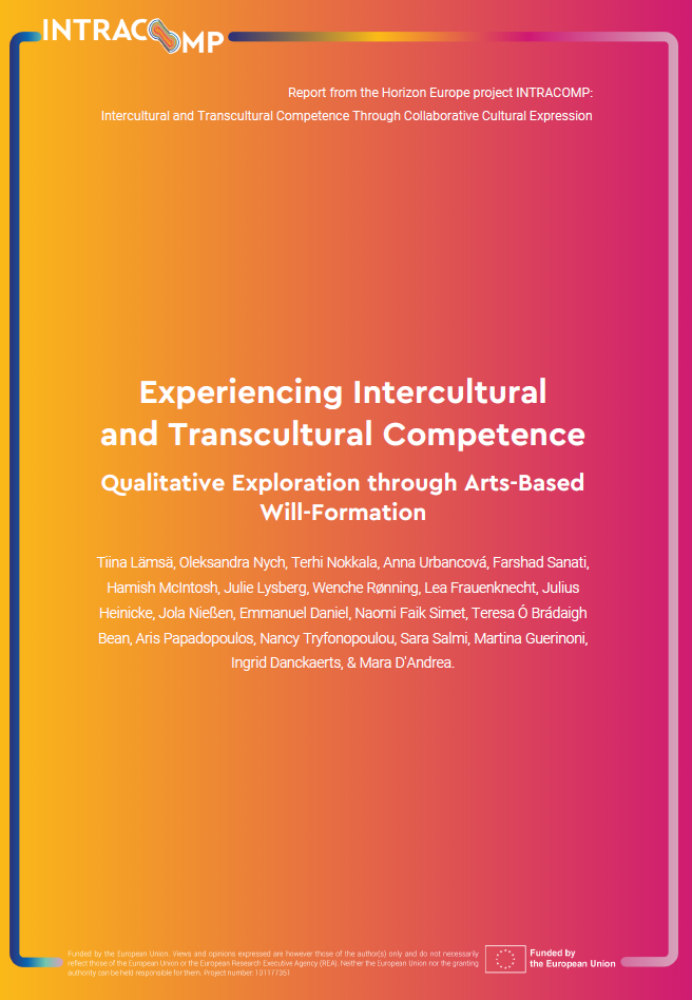Report title: Experiencing Intercultural and Transcultural Competence: Qualitative Exploration through Arts-Based Will-Formation
Deliverable D1.2 of the Horizon Europe INTRACOMP project presents an in-depth empirical exploration of how intercultural and transcultural competence (ITC) is experienced, interpreted, and co-created through participatory, arts-based methods. Combining online crowdsourcing and face-to-face workshops across diverse cultural contexts in eight partner countries, the report highlights ITC as a dynamic, relational, and situated practice.
A total of 113 participants, ranging from children and young people to educators, artists, and policymakers, engaged in collaborative activities such as music-making and video-based media. Rather than treating competence as a fixed skill, the study adopts a constructivist approach, identifying patterns of embodied learning, ethical sensitivity, collaborative meaning-making, and structural awareness.
The qualitative analysis identifies six core patterns of experiencing competence across individual, collective, and organizational or systemic levels. One of the key ways participants described competence was through reflection. Reflectivity was expressed through self-awareness and questioning one’s own perspectives in relation to others. This kind of reflection was not only cognitive but also emotional and ethical, often linked to moments of vulnerability, uncertainty, or transformation. Notably, reflectivity was found to act as a bridge between two ways of experiencing and perceiving competence, connecting relational and inclusive engagement with creative and adaptive co-construction. This means that reflection supported both interpersonal understanding (e.g., empathy, emotional safety) and deeper engagement with creative, metaphorical, and process-oriented learning. It helped participants navigate complexity and ambiguity in cultural encounters.
The findings provide a strong empirical foundation for the iterative development of a pedagogically relevant ITC framework, with implications for education, cultural policy, and community-based practice.
Keywords: Intercultural and Transcultural Competence (ITC), participatory will-formation, qualitative research, arts-based methods, nested ecologies
Authors: Lämsä, T., Nych, O., Nokkala, T., Urbancová, A., Sanati, F., McIntosh, H., Lysberg, J., Rønning, W., Frauenknecht, L., Heinicke, J., Nießen, J., Daniel, E., Faik Simet, N., Ó Brádaigh Bean, T., Papadopoulos, A., Tryfonopoulou, N., Salmi, S., Guerinoni, M., Danckaerts, I., & D’Andrea, M.
Contributors: Christopher Puio, Opha Talepakali, Evi Pappa, Maria Samartzi, Katja Mäkinen
Read and download the draft Experiencing Intercultural and Transcultural Competence report
Disclaimer
This document is a draft deliverable produced within the framework of the INTRACOMP project, funded by the European Union under Grant Agreement No. 101177351.
Views and opinions expressed are those of the author(s) only and do not necessarily reflect those of the European Union or the European Research Executive Agency (REA). Neither the European Union nor the granting authority can be held responsible for them.
This deliverable has not yet been reviewed or formally approved by the European Commission. A revised and final version will be published following the official review process.

